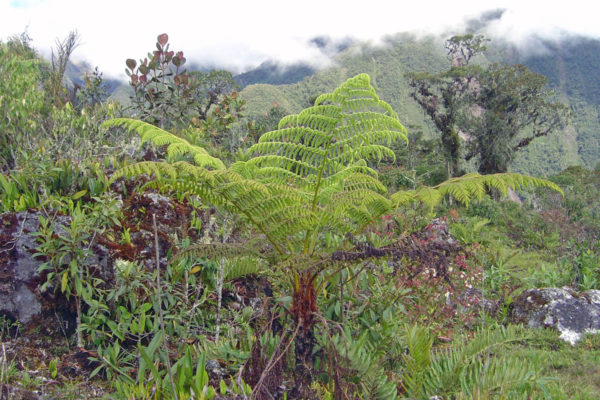Without plants, there is no life
Botanists have organized to try to stem the frightening loss of plant species across the globe. How well are they doing? They recently met in St. Louis to exchange stories from the botanical front lines.
Daydreaming about summer excursions?
Along the Missouri River between St. Louis and Hermann, a restored German
settlement, is an enchanted valley blessed by
low-density land use where people grow North American grapes for
Missouri wine, groundcover in interlocking trays for green roofs,
vegetables for St. Louis locivore restaurants and native trees for
environmentally conscious landscapers. WUSTL readers will recognize many of the contributers to Missouri River Country, a book that celebrates this land and the people who have lived there. All proceeds from the book’s sales will go to land conservation.
Book’s plea: Save the bonobos
Image courtesy of Marian BricknerA biologist at Washington University in St. Louis is the mastermind behind a project that has led to an informative book, aimed at children but appealing to all ages, on an endangered species of ape. Ursula Goodenough, Ph.D., professor of biology in Arts & Sciences, is the driving force behind I’m Lucy, A Day in the Life of a Young Bonobo, written by Mathea Levine, Goodenough’s daughter, and featuring the photographs of St. Louisan Marian Brickner. The book includes a convincing, impassioned Afterward by the famed primatologist Jane Goodall.
Fighting poverty in Madagascar
Women from Mahabo Village in Madagascar weaving baskets for the Blessing Basket Project.It might seem odd that college students in the middle of the United States could make a difference to a small village in a developing country halfway around the world, but that’s exactly what happened when five students from Washington University in St. Louis went to Madagascar. More…
Preserving the environment: energy- and cost-saving alternatives to recycling abound
A simple way to conserve is to use compact fluorescent lightbulbs wherever possible.On June 5, mayors of some of the largest cities around the world took the historic step of signing the Urban Environmental Accords in San Francisco in recognition of United Nations World Environment Day 2005. The international treaty sets out 21 specific actions for sustainable urban living. The accords address seven environmental areas common to all the world’s large cities; including water, energy and waste. While the focus was on the mayors’ pledge to take specific actions toward making their cities greener, an environmental health and safety expert at Washington University in St. Louis says there are many things individuals can do in their own homes and offices to promote sustainable living.
Nobel Prize-winning physicist Murray Gell-Mann will discuss Einstein’s legacy for the Assembly Series
In his talk, Murray Gell-Mann will look back to 1905 when Albert Einstein, an unknown scientist, published several papers, each with a revolutionary idea. He will examine Einstein’s creative thinking, how current cosmological discoveries relate to his work, and today’s efforts to find a unified theory of everything. Gell-Mann received the Nobel Prize in physics in 1969 for his discovery of the quark – the basic building block of all atomic nuclei throughout the universe.
Former Environmental Protection Agency chiefs Carol Browner and William Reilly to present the first Sesquicentennial Environmental Initiative Lecture
Former EPA administrators Carol Browner and William Reilly will deliver the first Sesquicentennial Environmental Initiative Lecture at 3 p.m., Friday, October 3. The lecture, which focuses on politics and the environment, is free and open to the public and will be held in Graham Chapel, located just north of Mallinckrodt Center, 6445 Forsyth Blvd., on the Washington University campus.

